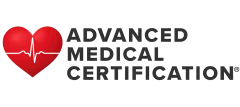Bloodborne Pathogens
- Overview
- Introduction
- Protect Yourself from Bloodborne Pathogens
- Act When you Come into Contact with Blood
- Clean up the Mess
- Report Exposure to Blood or Blood-containing Fluids Immediately
- What’s Next?
Bloodborne Pathogens Exam
Report Exposure to Blood or Blood-containing Fluids Immediately
If blood or bodily fluids from another person do come into contact with your skin or mucous membranes, you must act immediately. Reporting the incident to your supervisor is the only way to address the possible health consequences from exposure.
- Why Is Immediate Reporting Necessary? Exposure to bloodborne pathogens cannot be reversed, but you can help prevent the progression or incubation of an infection. For example, antiretroviral medications must be started within hours of exposure to HIV to give you the best chance for avoiding infection.
- Are Results of Exposure Available Immediately? Upon exposure, your employer will likely draw a baseline set of blood work immediately. However, this only shows what you have been exposed to previously. Results of any possible infections from a new exposure may not be possible for several days or weeks. Retesting at intervals after exposure may be necessary for billing/insurance purposes.
- What Is an OSHA Form 300? This form is required by OSHA to document and track the incidence of workplace injuries and “possible” illnesses caused by a person’s duties and responsibilities on the job. Although some employers may continue using paper-based versions of this report, electronic reporting may be used as well. Follow the policy of your employer in reporting the incident.
- Will an Employer Provide Care For Your Exposure? Unfortunately, every facility is different, and only your employer can provide information on what is and is not covered for your unique circumstances. Your employer may offer financial coverage for your exposure, and you may be asked to submit to a medical evaluation or submit relevant medical information after an incident. However, this information is kept confidential.
WHO IS SUBJECT TO OSHA REGULATIONS?
These regulations affect anyone who has a reasonable likelihood that they will come into contact with blood or bodily fluids while working. Determining reasonable likelihood is as simple as being in the same room, hallway or general vicinity as an ill person in the facility.


